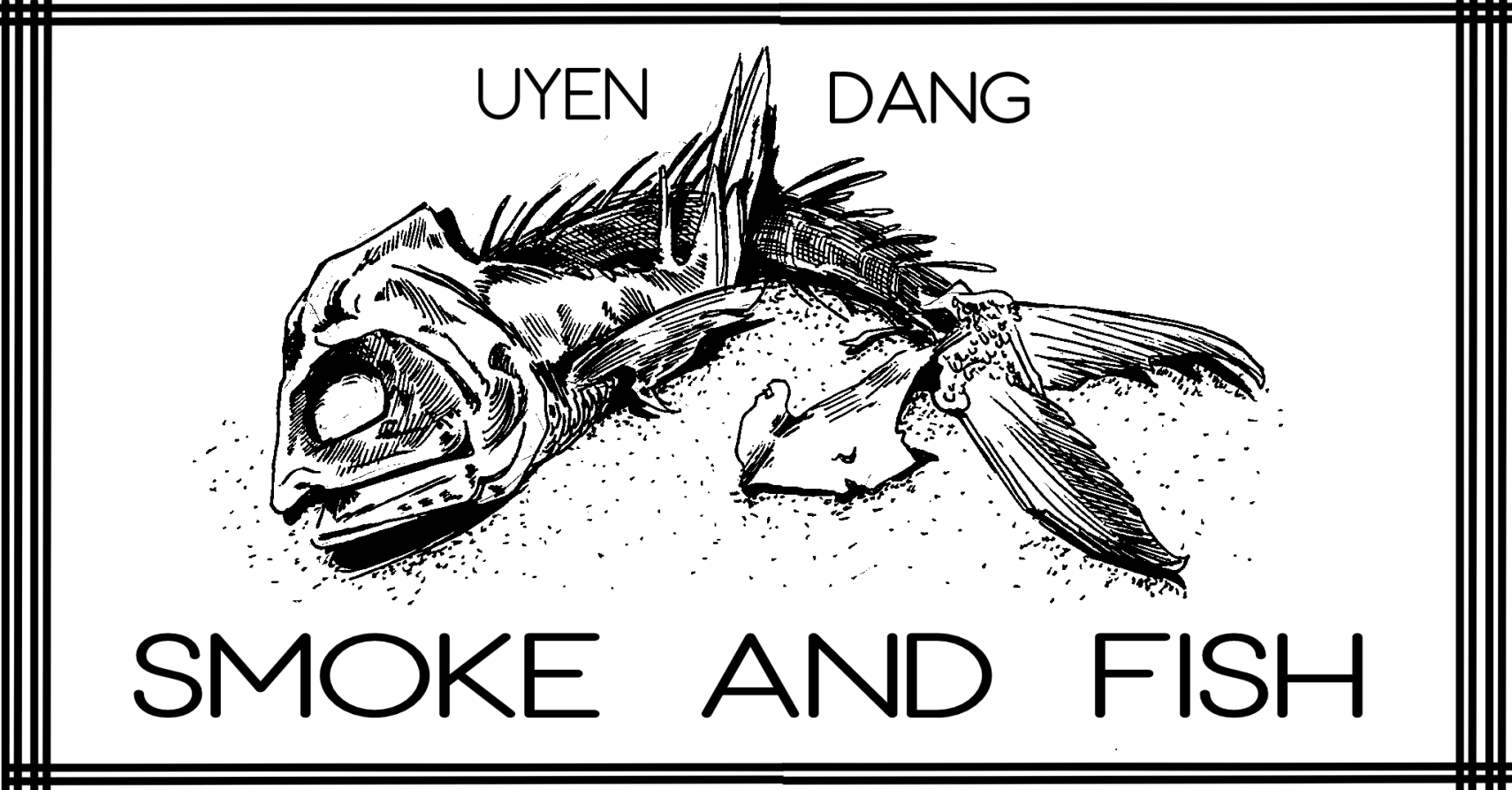Ong Hai is the one who teaches me about the smoke. It had been around before I was born, rising up and up, curling over heads, drifting past trees and waste and punishment. Ong Hai once told me that every time it rained, birds would shelter under the eaves of his sheet metal roof and do nothing but cough, cough, cough. But he said that was years ago and their throats were all scraped songless, and now whenever a storm hunched over them, they’d fly from tree to tree with their mouths splayed open, netting the rain like fish, feasting on what the sky owed them, the thunder. I’ve never heard thunder, but a part of me wonders if it’s like live meat falling out of the sky in a cardinal rain: a rain that’s been souring the water, settling acrid like a curse on the tongue. At first everyone blamed the smoke on the war, then the steel plant, and, finally, the water. But Ong Hai says it’s not water but grief at the bottom of the sea. He explains that there was a banyan on the moon, a many-limbed tree with shadows long enough to floss out the stars, and leaves that could heal the body tofu-blank, that extracted pain like a tooth. After a thousand years of foreign invasion the Jade Emperor summoned the banyan down, shaped it into a container, and flung it into the sea to hold grief deep enough to swallow anything: tanks, doorknobs, rice bowls, flames, cities, whole cows, the names that stoned in our throats, bridged us at our backs. I imagine the container grained and glittering, swelling with light—light like salt in the water, light like ghost teeth. I’ve never found it but Ong Hai did. He told me that as a boy, he contracted dysentery on a French military ship and found himself at the bottom of the South China Sea. He was the first kid on the ship to spot the container. Thinking it was stuffed with rice the Japanese stole, he tried to smash it open and come home a hero, and by the time he made a dent, he had no skin left. He was that kind of boy, all bones, homeless. He’s still alive, of course. When the container didn’t open he sat on the seafloor and cried and cried until he became fluent in salt, the ocean. That’s when it opened, Ong Hai said–opened up wide as rivers, took him in, shrouded him entirely like the dead. And when he came back up, he was older and had an accent and knew loss so well he floated through the world as if his body was made of nothing. Apparently he’d been at the seafloor for almost five generations until grief was discovered by a group of divers in the mid-2010s. They were searching for the source of cyanide in the ocean, which had led to the death of tons of fish, clams, shrimp, and cuttle in over four coastal provinces, as well as four hospitalizations caused by seafood poisoning. The day Ong Hai re-emerged, there were so many dead fish floating on the water that you could walk like Jesus across the surface of the sea, all the way to China, or that’s what he claims. The oldest diver was the first to spot the container and was also the one charged with breaking it. But according to Ong Hai, the container had already been shrinking. That’s how fish get to heaven, he told me one morning. It’s because grief’s been escaping. Fixing wings on them. He pointed the golden sprig of his finger up into the sun and light streamed into it like rain. I tilted my head up and squinted as if I could see it: being outfitted with flight, bones inhaling more air, more oxygen. That evening in early spring, the container crumbled in the diver’s hands and all remaining captive grief had broken free. The final grief to escape is believed to have originated from the ghosts of the dead themselves. It rushed at the diver as if it had been waiting, and there were rumors after that when soldiers in pond-green uniforms came to arrest the diver the next morning, they found him on his back, in bed, spirits billowing out his mouth like incense, the air carrying names on its tongue. Local officials have been blaming a Taiwanese plastic company for causing the smoke, but Ong Hai thinks it’s them. They’re rounding up the dead fish, he said, converting them to coal. He says that’s why you don’t see bodies flaking the sand anymore, why the wind smells like scorched beach, like cartilage soaked in sodium. Fish are being burned until another sky scrolls white over us, making another light, the clouds knitting together by the lineage of their bones. I ask Ong Hai what happens to burned fish if all the grief is gone, and he laughs at me. No, he says, just look at the sky. It’s still bringing them up, bringing them to their next lives. If you were dead you’d see it. You would see it everywhere.
Uyen P. Dang is a first-generation Vietnamese American from Saigon, Vietnam, where she writes from. She is currently carrying out research on ghosts, cemeteries, and spiritual tourism in Vietnam. Her work appears in or is forthcoming in Fugue, Sundog Lit, Passages North, and elsewhere.
Art by Bri Chapman

